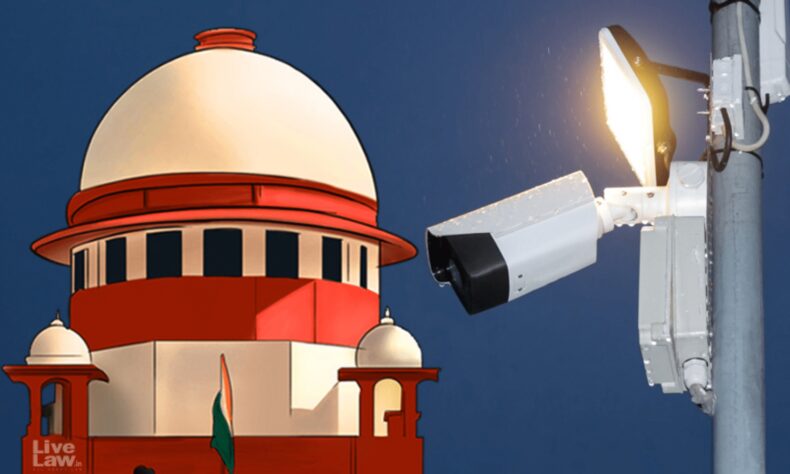
Image source: Live Law
In an order dated 18.04.23 the Supreme Court of India has granted ‘last chance’ to all the States, UTs and Centre to install CCTV cameras in all the police stations, investigative agencies and any agency that has power to make arrests.
The court in its order noted that Amicus Curiae (friend of the court) Siddharth Dave had given details in tabulated forms about the affidavits filed by the States and UTs in pursuance of the order of the court on 21.02.23 which had directed the States, UTs and Centre to file the compliance report about the installation of CCTVs in the police stations. This compliance report had to be submitted to the top Court by 29.03.23.
In December 2020 a Supreme Court Bench headed by R.F. Nariman had issued guidelines about installation of CCTV cameras in all the police stations in the country along with installation in all the central investigative agencies such as Central Bureau of Investigation, National Investigation Agency, Enforcement Directorate etc.
The top court in its recent order noted that only two Union Territories of Andaman and Nicobar Islands and Union Territory of Ladakh had complied with the order of the court. And only 2 States of Mizoram and Goa had complied with the order of the top Court i.e. making budgetary allocation and installing cameras.
While saying that it was not taking stringent action as of now, the Apex Court had said that all the remaining 26 states and Union Territories should comply with the judgment and file a detailed affidavit to the court in 3 months i.e. by 18.07.23. Also those who have filed the current affidavit will have to file that again.
The court in its order slamming the states of Kerala, Rajasthan, Sikkim, UT Dadra and Nagar Haveli and Lakshadweep said that they have not even filed the affidavit regarding the current state of compliance.
While saying it was not willing to take stringent action as of now, it said if not followed the court the Chief Secretary/ administrator of the state will have to be present in the court on the next date. And if not followed by the Centre the Home Secretary shall have to appear before the court.
The 2020 judgment of Supreme Court
The apex court in a 2020 judgment given by Justice R.F. Nariman had stated that all the police station in the country should have CCTV cameras with audio and video footage and a storage capacity of 18 months. And in any case the storage capacity should not be less than 12 months. The cameras must cover the entire police station including start, end, prison, cells, etc. and CCTVs must be equipped with night vision.
Image Source: Live Law
This judgment titled Paramvir Singh vs Baljit Singh was given in the backdrop to reduce the cases of custodial torture in the country and also the custodial deaths which according to NHRC takes place 9 in a day and very few of the police officers are arrested for such torture and deaths.
Installation of CCTV cameras would reduce the custodial tortures and thus protect the human rights of the accused. The judgment, which was hailed by civil society groups, human rights organizations, found little implementation from the concerned bodies.
The judgment also directed for the creation of the Central Oversight Body, under the ministry of Home Affairs for the proper implementation of the guidelines.












